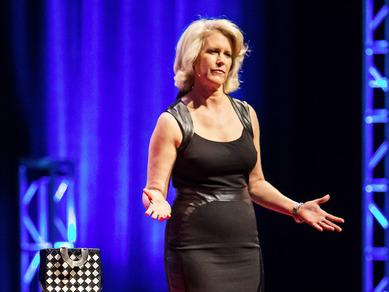 My college’s office of sexual assault prevention recently hosted a talk by Leslie Morgan Steiner. Steiner, a Harvard graduate, TED talk speaker, and author of Crazy Love, spoke about her experiences as a survivor of domestic violence and advocate for women and men in situations of abuse. You can find my notes on her speech here.
My college’s office of sexual assault prevention recently hosted a talk by Leslie Morgan Steiner. Steiner, a Harvard graduate, TED talk speaker, and author of Crazy Love, spoke about her experiences as a survivor of domestic violence and advocate for women and men in situations of abuse. You can find my notes on her speech here.As a feminist and as a woman, I feel that one of the most important goals is to eradicate violence against women. Thank God, I have never experienced violence of any form firsthand, but this issue resonates with me nonetheless. I don’t know why ending violence against women is such a priority for me. I guess it just offends my sense of fairness and justice. I believe that violence against women should be one of the feminist movement’s highest priorities, because it is impossible for women to even dream of full equality if they are being physically, emotionally, mentally, or in any other way abused.
It was so inspiring to hear how Steiner was able to leave her negative experiences behind and build a new life for herself. Even though she went through hell, she was still able to move forward and not let what happened to her define the rest of her life.
Steiner stressed that part of the healing process for her was breaking the silence and telling people about how she had been subjected to domestic violence by her husband. Every survivor of violence has a different reaction to their experiences, and they are all completely legitimate; nobody should be stigmatized for speaking out or remaining silent. However, I do believe that it’s important for those survivors of domestic violence who feel comfortable discussing what happened to them to do so. Steiner said that she also believes it’s important to talk about it because “it normalizes it for me and makes me not embarrassed of it.”
Steiner pointed out that the US has a lot of great resources for survivors of abuse to get out of situations of violence and deal with the aftermath, but there is still “only a surface awareness of domestic violence.” She mentioned how even after what happened to Yeardley Love, a lacrosse player at the University of Virginia who was killed by her abusive ex-boyfriend, became common knowledge among undergrads, people continued to stand by as they witnessed abusive relationships.
This is an excellent point. From a personal perspective, my only exposure to domestic violence is through my feminist advocacy work and blogging. If I weren’t so into women’s rights-related topics, I would be woefully ignorant about violence against women. To me, this is a call for action. The feminist community, along with other communities that understand how problematic violence against women is, must educate society at large about the complexity of this issue. Although domestic violence may not be as pervasive in the US as it was 40 years ago, so much as one woman suffering from an abusive partner is one too many.
Overall, Steiner’s speech really resonated with me and gave me hope that violence against women will, someday, end. I certainly hope I can help facilitate that change in the world and make the US and every country a more hospitable place for women.

